Previous Chapter :Cao Cao's Northern Expedition 7(Three Kingdoms 43)
Catalog of Three Kingdoms’ history
From the Battle of Bowang博望 in 202 A.D. to the eve of the Battle of Red Cliff in 208 A.D., Liu Bei, who had spent half of his life on the battlefield, spent six quiet years in Xinye新野. He is like a security guard hired by the owner, Liu Biao刘表, who sits idly at the northern gate of Jingzhou荆州 every day, watching Cao Cao gradually unified the northern China ; touching the flab on his thighs, lamenting the uncertainty of his future .
Liu Biao, the Provincial Governor of Jingzhou, was a descendant of the Western Han Dynasty’s Emperor and a famous scholar. Although he had no much ambition, he was very tolerant of the scholarly clans and the common people. At the Late Han period, when the Central Plains were in turmoil, many scholars went south to Jingzhou to seek refuge. Liu Biao not only generously supported them, but also set up school officials to encourage them to set up schools and study Confucian classics, Jingzhou then sprouted a strong learning atmosphere and gathered a large number of famous scholars, which presented a flourishing situation that had never been seen in the Southern China before.
Liu Bei understood that if he wanted to build a successful career, he had to get famous scholars with wisdom and reputation to assist him, so as to gain the support of the local scholars, he began to go around to visit the wise and capable talents.
In Han Dynasty(202BC-220AD), people interacted with each other depending on their status and position; local powerful families were often associated with the officials in local government, while those farmers could make friends mostly with the vendors. In Jingzhou, there was also an invisible circle of friends among the local famous scholars. Sima Hui司马徽, whom Liu Bei first befriended, was a member of the circle.
Sima Hui, with the courtesy name of Decao德操, was a famous scholar from Yingchuan颍川 Commandery, whose art name was Mr Shuijing水镜. At that time, in order to avoid the war, he lived in Xiangyang襄阳, the capital of Jingzhou. Sima Hui was fond of making friends and had the reputation of seeking talent people. His close friends included Xu Shu徐庶 and Shi Tao石涛, who were also famous scholars in Yingchuan, Meng Jian孟建 from Runan汝南, Cui Jun崔钧 from Boling博陵, Han Song韩嵩from Yiyang义阳, and Pang Degong庞德公, who was a local famous scholar in Xiangyang. As the royal member Liu Yi刘潩 from Nanyang南阳 and Xiang Lang向朗 from 襄阳,were both students of Sima Hui.
Many of Sima Hui's close friends did not like Liu Biao's character of having no ambition, thus they chose to live in seclusion and not come out to be officials for Liu Biao. They hoped to find a person who had the ability to act as their political representative to realise their ideals which they could not realise in Liu Biao. This was the reason why Liu Bei chose to visit Sima Hui.
Sima Hui recommended two men to Liu Bei, Pang Tong庞统 and Zhuge Liang诸葛亮, of whom Pang Tong is the nephew of Pang Degong, while Zhuge Liang is a student of Pang Degong. Pang Degong had a very high appreciation for these two young men, calling them the Young Phoenix and the Sleeping Dragon.
The reason why such famous people as Sima Hui and Pang Degong spared no effort in recommending Zhuge Liang and Pang Tong was that they still looked forward to realising the Political ideals themselves through Zhuge Liang and Pang Tong. Soon Xu Shu admiringly joined in Liu Bei's command, he once again recommended his close friend Zhuge Liang to Liu Bei.
Zhuge Liang, whose courtesy name of Kongming孔明, was from Langya琅琊Commandery in Xuzhou徐州. His ancestor Zhuge Feng诸葛丰 had been a Colonel of Sili司隶, and his father, Zhuge Gui诸葛圭 ,had been the deputy Commanderial Governor of Taishan泰山, coming from a standard bureaucratic family.
Zhuge Gui had three sons and two daughters, the eldest son Zhuge Jin诸葛瑾, the second son Zhuge Liang, and the youngest son Zhuge Jun诸葛均 . In 189 A.D., the year of the death of Emperor Ling of Han(reigned167-189AD), Zhuge Gui also died of illness, so the Zhuge Liang’s siblings were all raised by their father's cousin Zhuge Xuan诸葛玄. At that year, Zhuge Jin was 15 years old and Zhuge Liang was only 8 years old.
In 195 AD, when Cao Cao's eastward campaign against Tao Qian陶谦 led to a massacre in Xuzhou, Zhuge Xuan fled with his family to the area of Lujiang庐江 Commandery for refuge. Zhuge Xuan had previously served as an subordinate of Liu Biao, their friendship was very close, so Liu Biao recommend Zhuge Xuan to be the Commanderial Governor of Yuzhang豫章.
But the good times didn't last long, not long after Zhuge’s family arrived at YuZhang that Zhuge Xuan was soon replaced by a new governor appointed by the imperial court. After losing his official position, Zhuge Xuan could only take Zhuge Liang and his siblings to join Liu Biao. However, Zhuge Jin, who was already an adult at this time, did not follow his family to Jingzhou, but travelled north to Qu'e曲阿 and stayed in Yangzhou扬州. However, Sun Ce孙策, the Lord of Eastern Wu at that time, did not appreciate these so-called famous scholars from the north of the Yangtze River,Zhuge Jin was not appointed to any Important position. It was only after Sun Ce's death in 200 A.D. that Zhuge Jin was recommended by Hong Zi弘咨, Sun Quan's brother-in-law, to Sun Quan, whom was eager to cultivate a new force being loyal to him, and thus Zhuge Jin stepped into the officialdom of Eastern Wu.
After Zhuge Liang and his siblings came to Xiangyang, although Zhuge Xuan died within two years, Zhuge Liang still managed to squeeze into the circle of scholars in Jingzhou by relying on his uncle's connections.
Zhuge Liang's eldest sister married Kuai Qi蒯琪,the family of Kuai in Nanyang was the leading prestigious family in Jingzhou, Kuai Yue蒯越 and Kuai Liang蒯良 are both Important ministers under Liu Biao,they are the representative of the Jingzhou scholars.
Zhuge Liang's second sister married to his teacher Pang Degong's son, Pang Shanmin庞山民, and Pang Tong was Pang Degong's nephew, so Pang Tong, who was regarded as the champion of the Jingzhou scholars, was also related to Zhuge Liang.
Zhuge Liang's father-in-law, Huang Chengyan黄承彦, was himself a famous scholar of Jingzhou, and Zhuge Liang's mother-in-law, Huang Chengyan's wife, was Cai Mao's蔡瑁 eldest sister. The Cai family in Xiangyang is likewise the top-ranking family in Jingzhou, Cai Mao is the most Important subordinate of Liu Biao, Cai Mao’s another sister is Liu Biao’s wife. Thus Zhuge Liang was also very colse to the Cai family and Liu Biao. When Zhuge Liang meets Liu Biao,he had to call Liu Biao“ uncle ”.
From 197 A.D. after the death of Zhuge Xuan to 207 A.D., Zhuge Liang has been living in seclusion in Longzhong隆中 for ten years, he did not go out to be an official, but by virtue of the intertwined family relations and his own talent, he is able to spread his reputation far and wide in the circle of famous scholars in Jingzhou. Therefore, when Liu Bei had visited him for three time ,that is not really aggrieved, if Liu Bei could hire this Sleeping Dragon to come out, it would greatly benefit his future career in Jingzhou.
The year was the winter of 207 AD, and Cao Cao was still on his way back from Liucheng柳城. Coincidentally, a few months later, Sima Yi司马懿, a famous scholar from He'nei河内 Commandery, who is two years elder than Zhuge Liang, with the same intertwined family connections, was recruited by Cao Cao, thus formally stepping into the official arena.
These two heroic figures of the late Three Kingdoms period, basically at the same time, said goodbye to their peaceful life , and each stepped onto the bewildering road ahead of their hearts to serve the entire country.
To be Continued.
Your support is my greatest motivation! I will keep working hard!

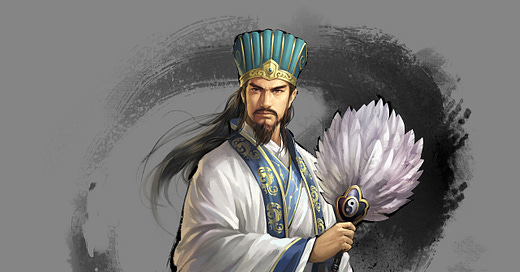



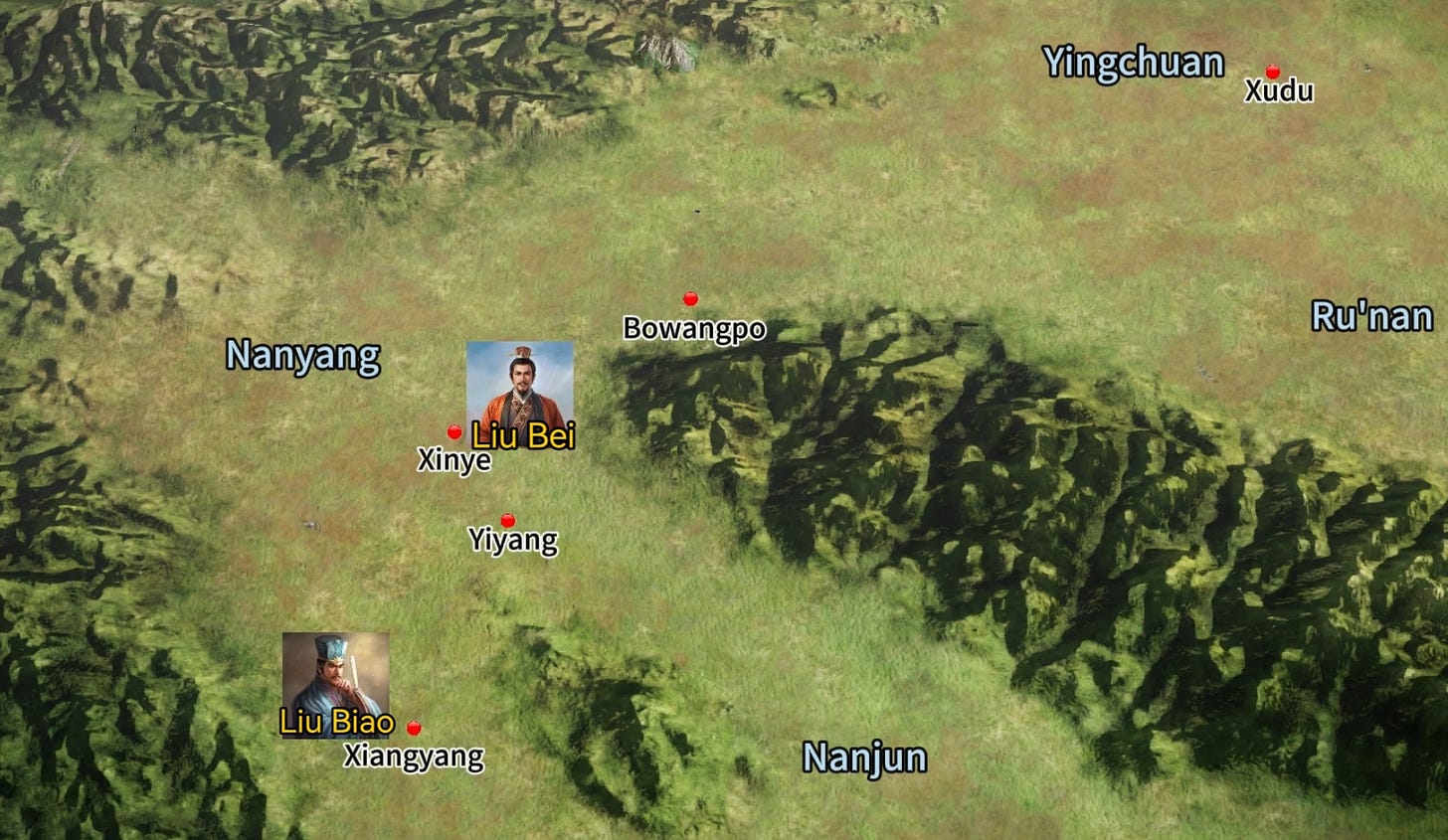
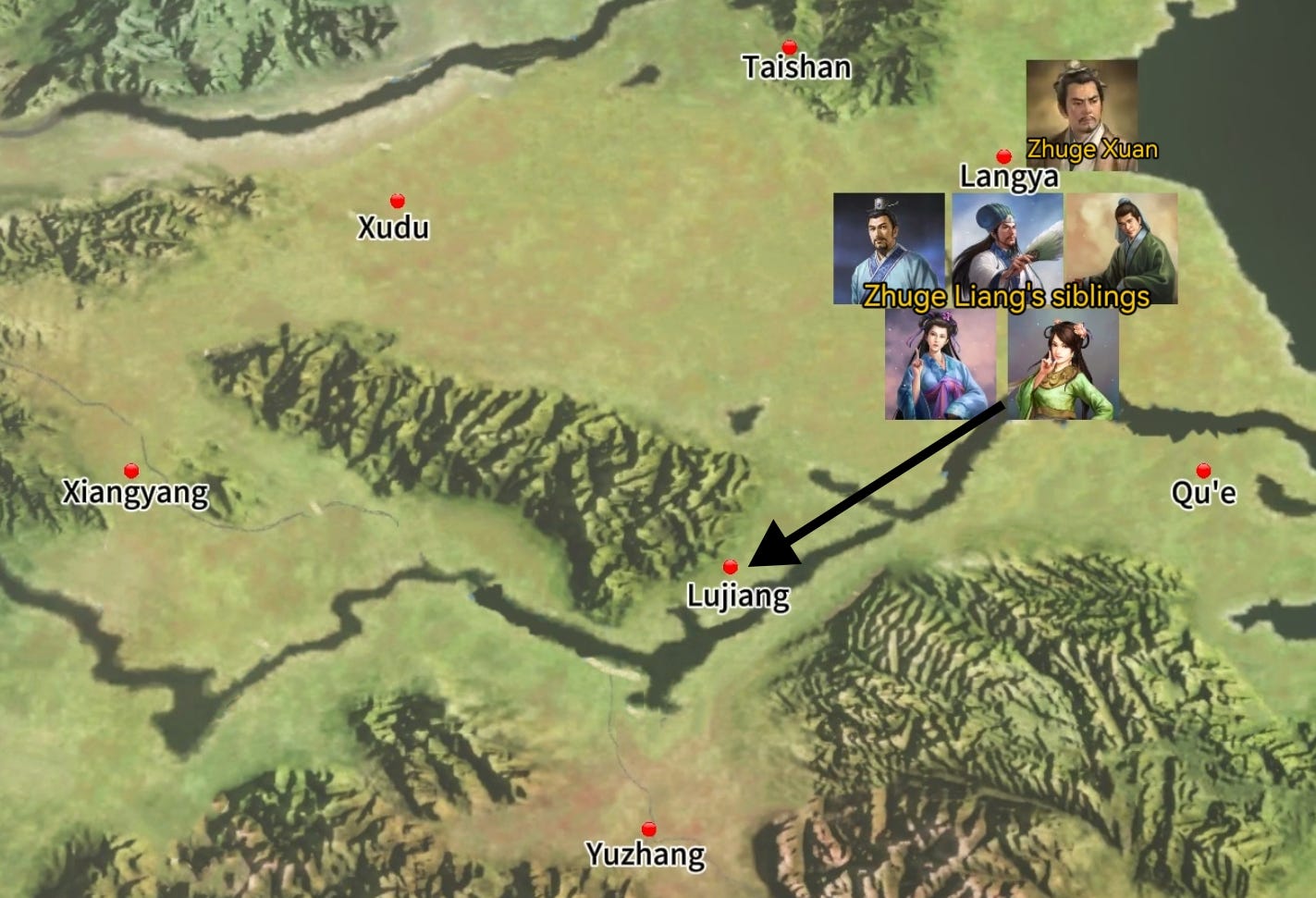
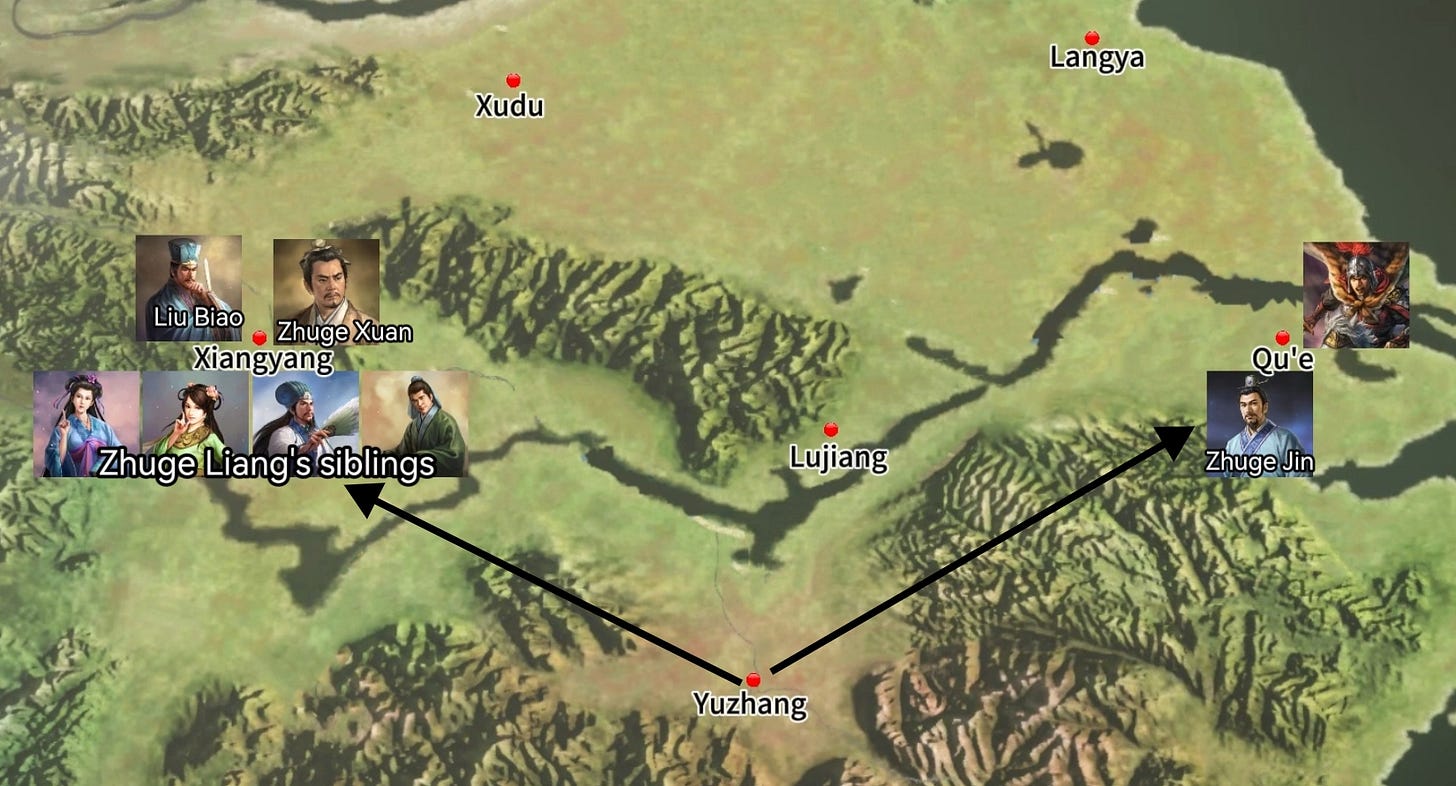
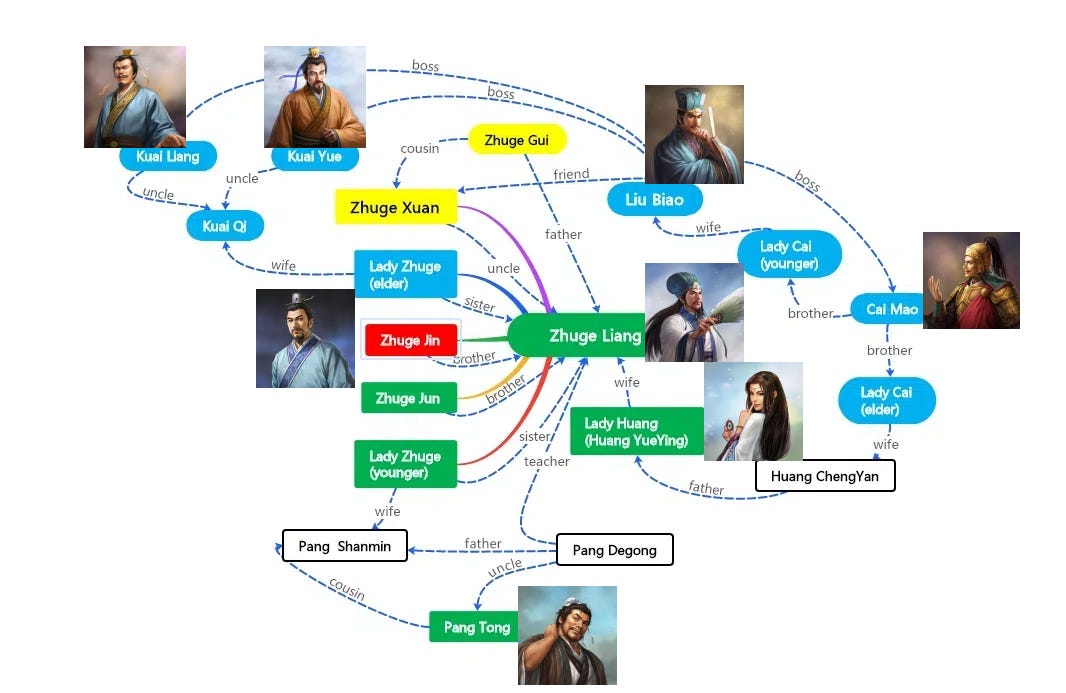
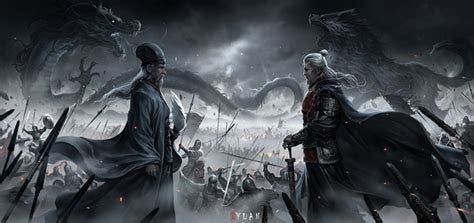
Thanks very much for your expertise in Chinese history. These accounts fill in much of the needed details which most others elide.